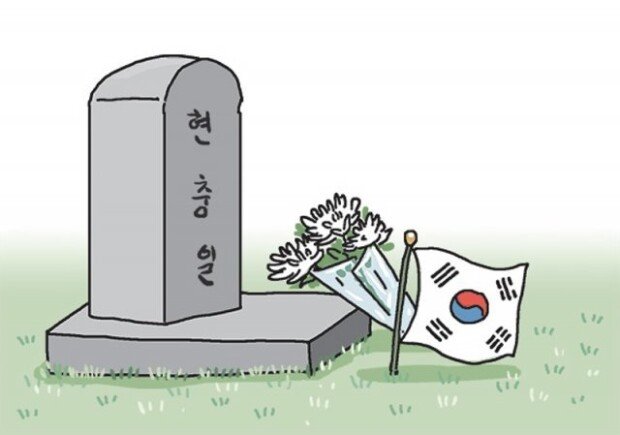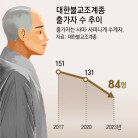Origin of Memorial Day
Origin of Memorial Day
Posted June. 07, 2022 07:51,
Updated June. 07, 2022 07:51

June 6, 1944 was the day when the Normandy Invasion was launched. Twelve years later, Korea declared June 6 as Memorial Day. Official explanation for this is that during King Hyeonjong’s ruling in the Goryeo era (the year of 1015), there was a custom where the bodies of casualties during the war were sent home on June 6 so that ancestral rites could be held at home. Also history says that on Grain in Ear, a Solar Term, during Joseon era there was a custom where bodies of dead soldiers were buried.Some say that in 1956 that year, Grain in Ear happened to fall on June 6, hence Memorial Day.
However, such claims are unreasonable. The custom of burying the dead during King Hyeonjong’s ruling in the Goryeo era was done at war with the Khitan people, thus it was not an annual affair. The claim of burying dead soldiers on Grain in Ear does not make sense either, as the Solar Term comes around every year while wars break out irregularly. In addition, Grain in Ear falls on one of the busiest times of the year for farming. Sowing must be done by this period, so people might have unearthed dead bones while plowing but this has nothing to do with treating those who did in war with respect.
Perhaps Yeoje would make more sense. It was an ancestral rite that was held for victims that lost their lives to war, construction or disasters. Yeoje was held three times a year on Clear and Bright, July 15 and October 1. Whenever there were casualties from a battle, ceremonies were performed in accordance with Yeoje rites. In 1605, Donggwanjin was under siege by attack from the Jurchen people, killing many soldiers, residents and even high-ranking officials. A rite was held in the following February to honor the dead, which included burying corpses by gender (typical for Joseon) and performing ancestral rites. If Yeoje was the origin of Memorial Day, it would mean that Joseon celebrated Memorial Day three times a year.
Perhaps June 6 became Memorial Day because a holiday was needed in June when the Korean War broke out. I am not saying that we should celebrate Memorial Day three times a year as we did in the Joseon era or replace it with another date. History in other countries shows that historical dates can be set as holidays based on a single event. June happened to be the month when the Korean War broke out and war between Goryeo and the Jurchen people was on a massive scale, when the capital went under siege and caused huge casualties. Thus the event of June 6, 1015 alone would be sufficient to honor Memorial Day. There is nothing wrong with the date selected, it is simply that the historical explanation behind it does appear to make sense.







